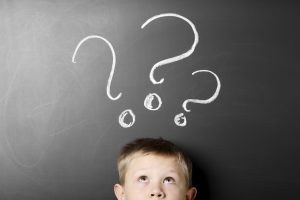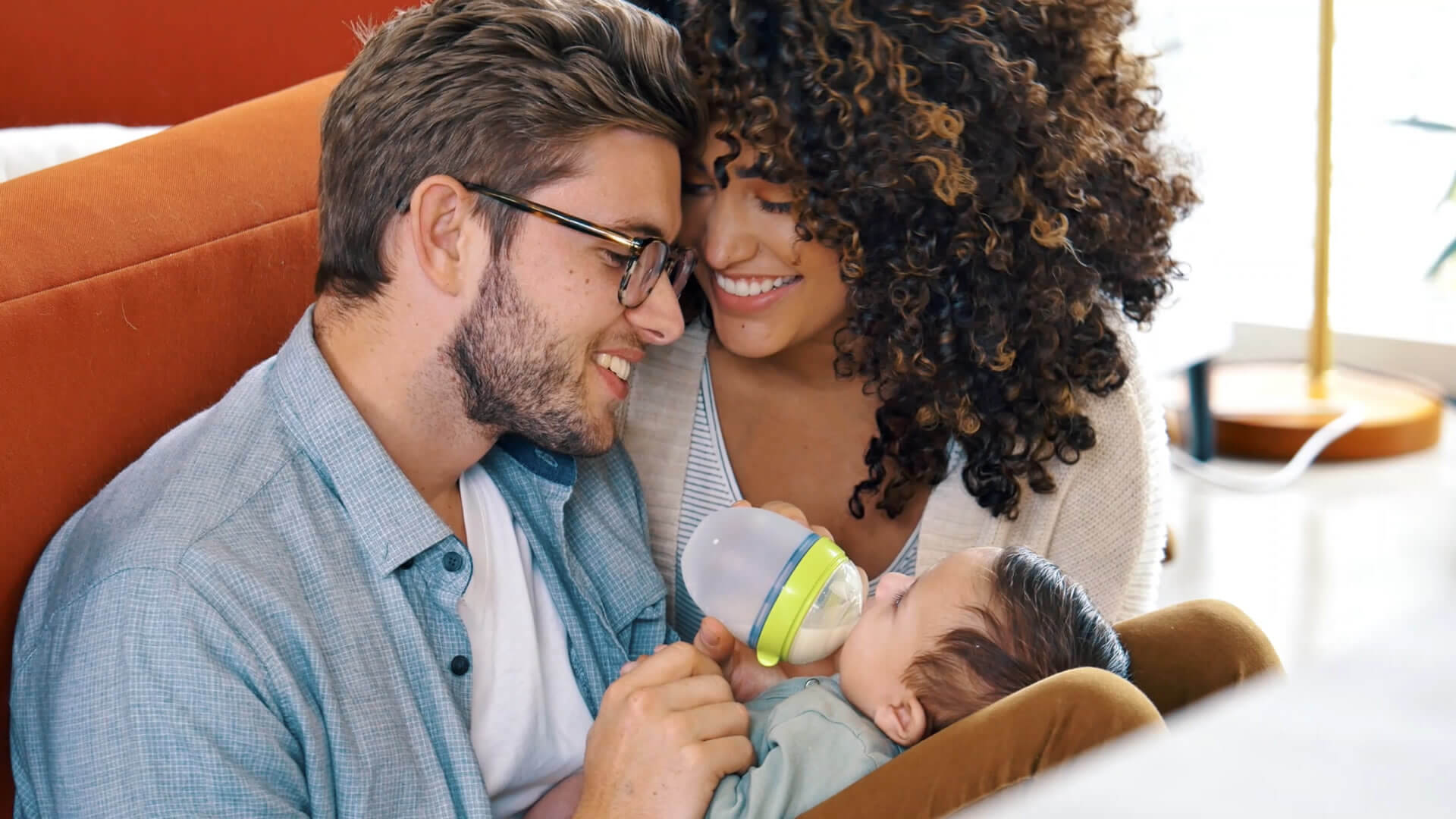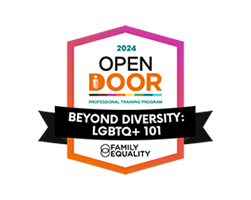The messages that bring me the greatest satisfaction contain shared photographs of the families that I’ve had a small part in building. I look at those pictures and feel better about the future. I’m frequently asked how to respond to children’s questions.
Some of life’s more challenging questions originate with our children. The process of third-party assisted reproduction and the resulting families that are formed can be a source of questions for young children.
Discovered secrets plant seeds of distrust. Secrets imply that the circumstance of your child’s beginning is something to be hidden and ashamed of. Mysteries also provoke curiosity and a need for discovery that might not otherwise be there. In answering those questions truth is always best but your answers must be properly framed for the child’s age and circumstance.

As parents, we hear our children’s questions from a perspective that is quite different from theirs. We already understand the possible complexities of their questions. We’ve experienced and come to terms with the various social and cultural connotations implicit in the subject matter. However, a child’s question comes from a different place; a simple and innocent world. The accumulation of our own experiences can color and fill in the spaces between their words. Consequently, the question you think you hear may not be the question they have actually asked.
It’s important to shape your response in a thoughtful and age-appropriate way. In time, the same question may require a different, more detailed answer. However, the central theme and tone of the message will always be the same; this family will always be a loving safe harbor. When you hear their questions ask yourself “What do they really want to know and what information do they need to process that answer”.
Your children are bright and curious. They are eager to understand the universe they find themselves in. When they are young their family is their world and you are the axis around which it turns. They want to know where and how they fit into that world. They want to feel safe, secure, and loved. One of the greatest gifts parents can give their children is to nourish their own relationship. That implicitly adds to your child’s sense of security and stability.
We are evolutionarily programmed to spot trouble and social anomalies. It is a mechanism of self-preservation. If children notice something that might be interpreted as “different”, they want to know that “difference” does not represent a challenge or threat to their social acceptance, security and the happiness of their family.
Our intuitive proclivity to identify differences is also a mechanism that defines affinity groups – this is another way humans preserve a community of interest and mutual survival.
Any answer needs to be framed in this context. At the same time, we also need to be cautious not to unintentionally or prematurely inoculate them with issues they will be better able to wrap their arms around at a later stage of maturity.
Children are very perceptive; there cannot be a hint of defense or apology. They need to know that you are forthcoming, confident, and comfortable about their beginnings and the structure of your family. Your answers must be positive and affirming.
At some point, your child may feel that their family was formed in a “different” way. Even timing can be an issue; parenthood at an older age or in a subsequent marriage. These feelings of difference can be further compounded if yours is a one-parent family or a family where both partners are of the same gender.
They need to be told that, “just like there are many different types of people, there are many types of families. It is OK to be different – EVERYONE is different in some way. We are all unique. Some children are born in hospitals, others are born at home. Building some families requires the help of others. In some cases, no help is needed. Some parents are older – some are younger. There are families with one mom, families with one dad, families with one mom and one dad, and families with two moms or two dads. There are families with one boy, two boys, one girl, two girls, or a boy and a girl. There are many differences but there is one thing that is always the same; good families always love and take care of each other – just like we do. We have a good family”.
Here is list of additional resources you may wish to consult:
Grimes, Janice, (2004) Before You Were Born: Our Wish for a Baby. X, Y, and Me. LLC: Webster, IA, ISBN: 0-9755028-0-8 (This book addresses disclosing to children how they were conceived through ART techniques. This author has created a series of books to assist parents in this task and each one offers a different beginning depending on the method and circumstance (IVF, donor, single parent, surrogate, female or male partners, etc.)) Available through www.xyandme.com
Bourne, Kate, (2002) Sometimes it Takes Three to Make a Baby. Melbourne IVF, Victoria Australia. (Written for 3-9-year-olds in 3 sections. The first is a story about donor conception to be read to the child. The second is “My Very Own Book About Me” – a record of the child’s personal conception story. The third section offers reassurance for children about their own story and answers to their questions) Available through www.mivf.com.au or wrayjone@watrose.com
Gordon, Elaine, (1992) Mommy, Did I Grow in Your Tummy? Where Some Babies Come From. EM Greenburg Press. (Written for ages 4-12 to help children understand their unique origins) Available through www.amazon.com or www.elainegordon.com
Ehrensaft, Diane, (2005) Mommies, Daddies, Donors Surrogates: Answering Tough Questions and Building Strong Families. Guilford Press. (Comprehensive book about the kinds of issues faced by families formed through third-party reproductive technology. Excellent sections on how, when, and what to tell your children). Available through www.amazon.com
Considine, Kaitlyn (2005) Emma and Meesha My Boy: A Two Mom Story. (Lessons for children in a same-sex family – The publisher’s website is a resource center for LGBT families and their children). Available through www.twomombooks.com and www.twolives.com .
No job is more challenging, more important, or more rewarding than parenthood. I wish you well.
Sylvia Marnella, Ph.D.
drmarnella@thechirp.org
www.TheChirp.org


We help Intended Parents Create Happy Families via Egg Donation & Surrogacy with the help of caring Egg Donors & Surrogates.
Donor sibling registry, egg donation process, Egg Donor Solutions, Intended Parents, Why use an agency?, Intended Parent Resources, Intended Parent Webinar, Getting started, Why our agency?, Selecting your donor.





